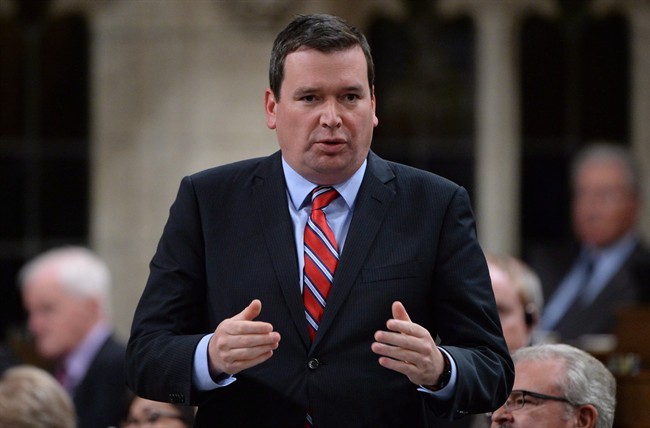OTTAWA – The Harper government is expanding its foreign aid priority list by five countries, widening the pool of recipients to the level set by the previous Liberal government.

It has added the Philippines, Burma, Mongolia, Burkina Faso, Benin, Congo and Jordan to the list and dropped Pakistan and Bolivia.
However, the reshuffling of aid priorities is not accompanied by any new funds to cover the expansion of the list of target countries to 25 from 20.
READ MORE: Canada cuts aid as other nations push assistance to all-time high
Last month, UN Secretary General Ban Ki-moon called on Canada, along with its rich Western allies, to boost overall foreign aid spending to 0.7 per cent of gross domestic product from its current level of less than 0.3 per cent.
Development Minister Christian Paradis told The Canadian Press that the government will shuffle existing funds to cover priorities while putting in place new accountability measures to ensure the money is well spent.
“We will have to reshape things to make sure we do address the needs,” Paradis said in an exclusive interview.
He said the government will continue to pursue other sources of aid partnerships, including tapping into private corporations.
“We believe that we can unlock sleeping money in the private sector and philanthropists. We have to be proactive.”
The government shortened the list of priority countries to 20 in 2009 and drew fire for cutting several African recipients.
The new list includes Congo, where rape as a weapon of war has been criticized by Canada and many others.
READ MORE: World leaders praise Harper for mom and child health efforts
The new alignment jettisons Pakistan, a country that was the staging ground for al-Qaida attacks on Canadian troops based in Afghanistan. Canada ended its combat contribution to the Afghan mission in 2011 and withdrew the last of its military trainers in March.
“It’s no longer a focus because there is a lot of instability, huge security issues and we think that at this point, given the circumstances, we can concentrate on other places where we can make a real difference,” Paradis said. “We want to focus on results.”
As for adding Congo, Paradis said this aligns with the Canadian foreign policy priority of ending the forced marriage of young girls and the use of rape as a weapon of war.
New Democrat MP Paul Dewar, the Official Opposition’s foreign affairs critic, has for several years called on the government to recognize the carnage in Congo, which has claimed an estimated three million lives over the last decade.
Congo’s rich mineral deposits may have helped spark the conflict there, but Paradis said they also give the huge central African country its greatest hope.
“The needs are there, big time,” he said, noting that the country is among the lowest on the United Nations human development index.
“On the flip side, Congo has a lot of resources. So there’s a way to eradicate extreme poverty both with aid and after that, if they could focus on good governance and resource development.”
Iraq has also been added to a secondary list of development partners, countries that aren’t of primary focus, but that still receive some bilateral funding.
Paradis said Canada will continue to assess how it can make aid contributions there in light of the recent offensive by the al-Qaida Sunni militant offshoot, the Islamic State of Iraq and the Levant.
The Palestinian territories also retain their spot on the list, while the tiny desert kingdom of Jordan has been added for the first time.
Jordan has been inundated by a massive influx of refugees from the civil war in neighbouring Syria and has been the recipient of some major Canadian assistance in recent years to help it cope.
“Supposing the Syria crisis was going to end tomorrow, the region will have years to recover from this,” Paradis said.
“Even if you say this is a middle-income economy, well they have major, major challenges and this why we put them (Jordan) as a country of focus.”

Comments